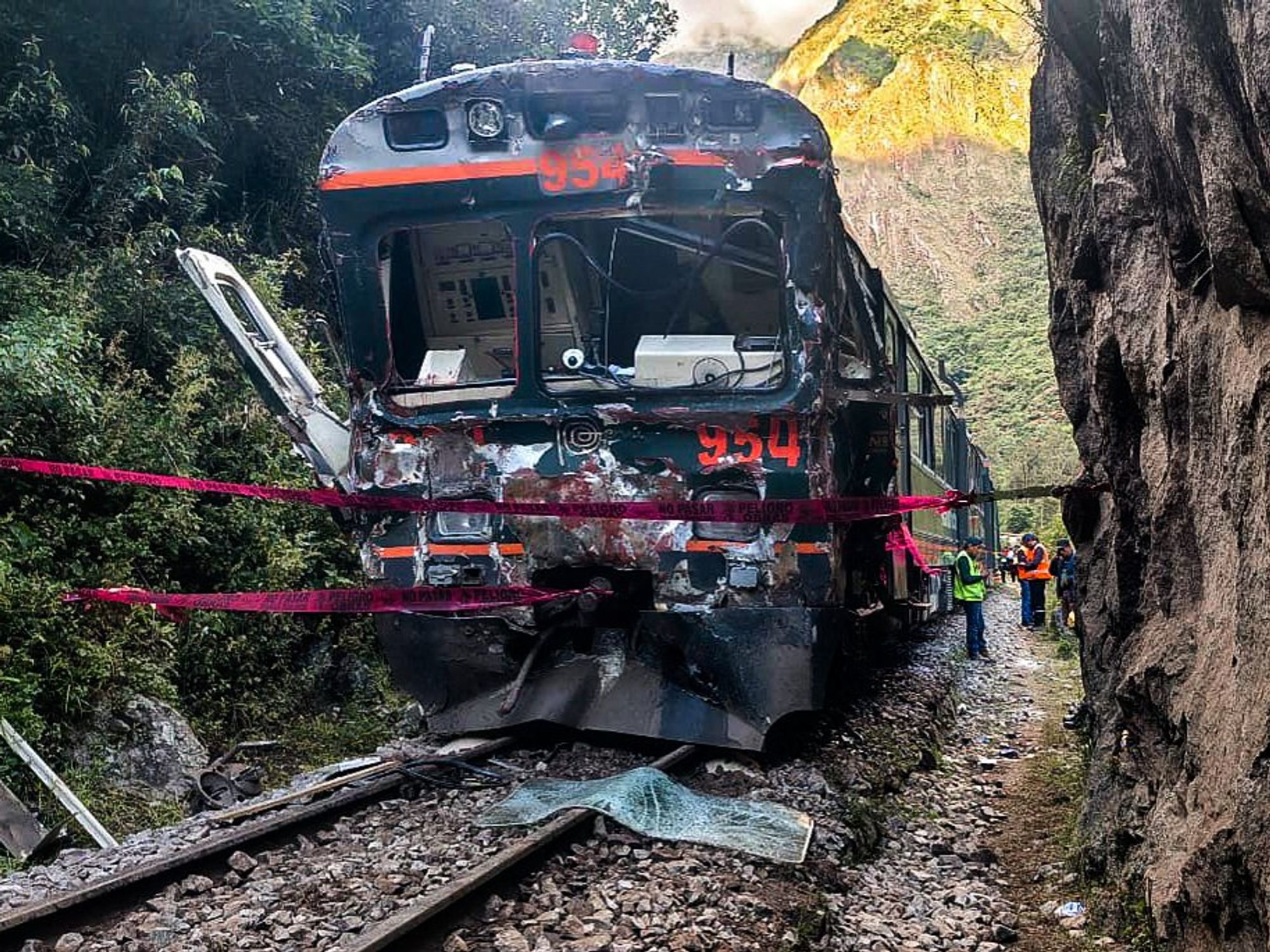Ancient Roman city found underwater after discovery of luxury submerged villa
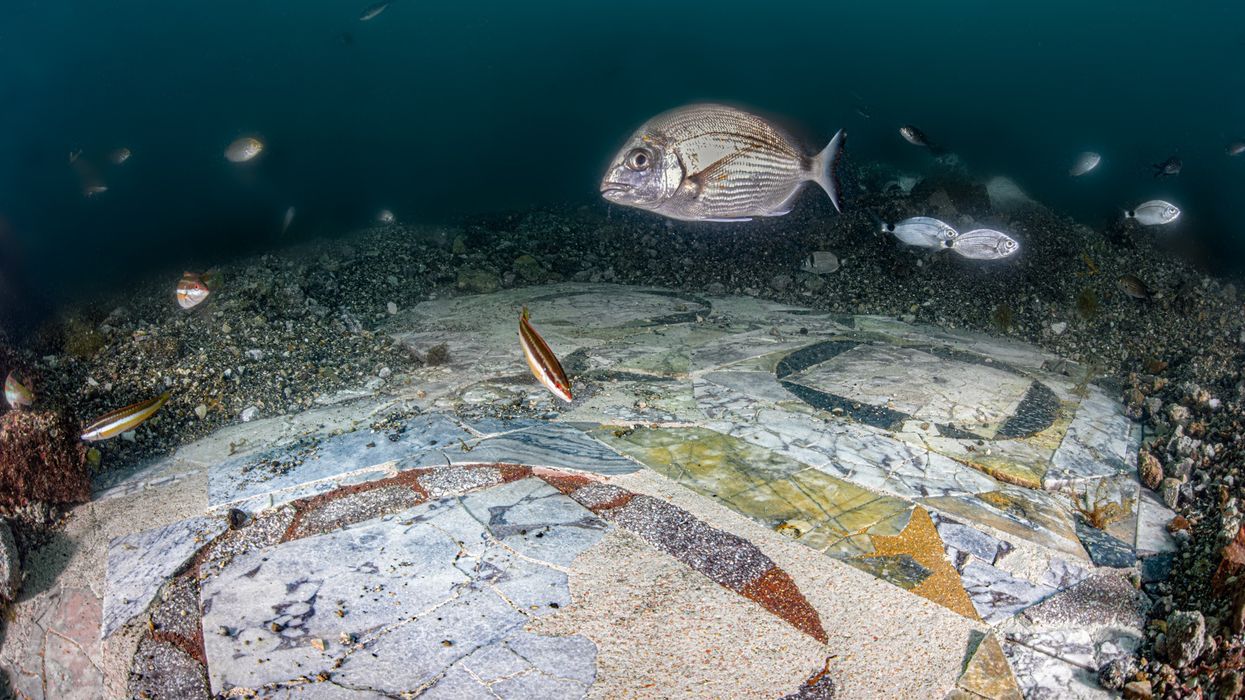
A sunken luxury holiday retreat has been discovered in the Gulf of Naples, Italy with archaeologists recovering stunning relics of a Roman city
|Parco Archeologico Campi Flegrei

The seaside city has been discovered sunken under the ocean
Don't Miss
Most Read
A sunken luxury holiday retreat has been discovered in the Gulf of Naples in Italy, with archaeologists recovering stunning relics of a Roman city.
In the latest find, a multicoloured marble floor with thousands of slabs in different shapes and colours was found and restored.
The mosaic is made of marble, shell, mother-of-pearl and glass, according to archaeologists.
The city of Baie is located under the sea and researchers have worked for a number of years to recover the hidden treasures.
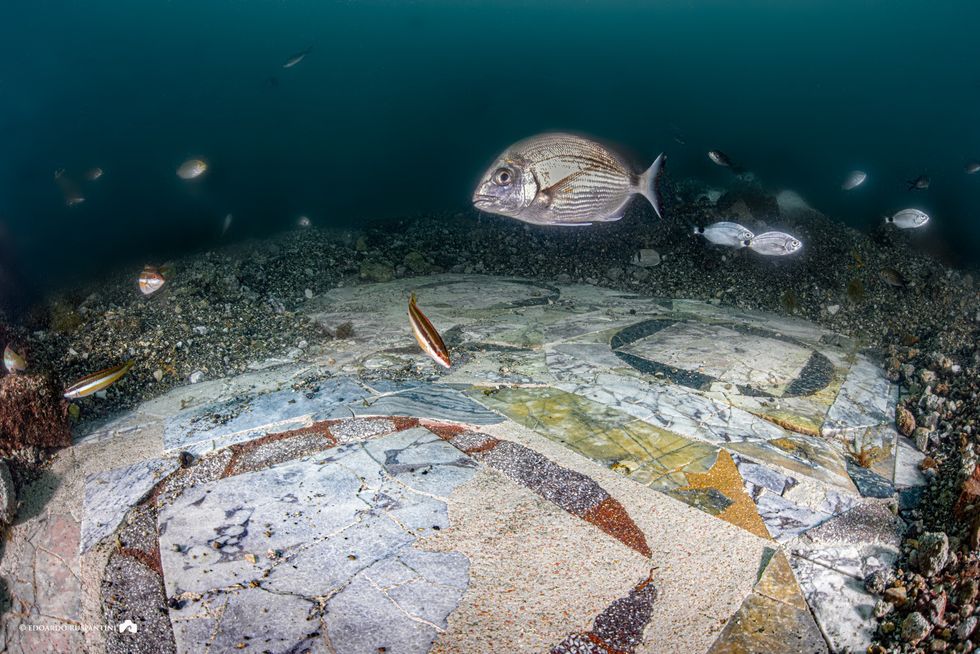
A sunken luxury holiday retreat has been discovered in the Gulf of Naples
| Parco Archeologico Campi FlegreiOfficials say the mosaic would have been the floor of a reception room in a villa owned by a high-status individual during the third century.
It is believed the materials were second hand, previously used for other walls and floors.
Baiae was a seaside resort visited by privileged Romans such as Julius Ceaser, Cicero and Hadrian.
It was home to beautiful, luxury villas which people visited for volcanic hot springs.
LATEST DEVELOPMENTS:
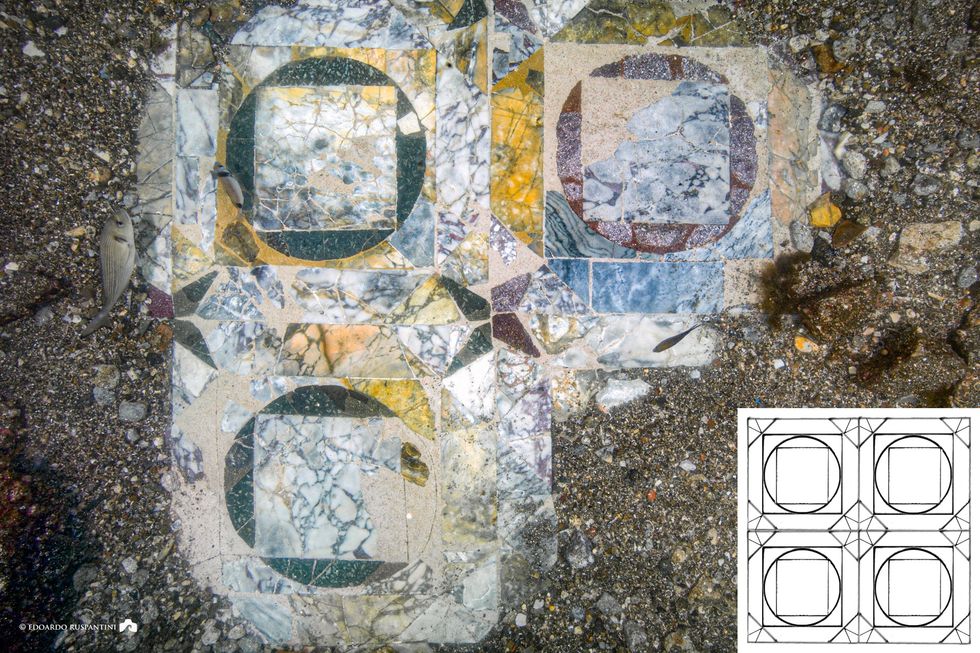
It is believed the materials were second hand - previously used for other walls and floors
|Parco Archeologico Campi Flegrei
The city began to decline during the fall of the Roman Empire, when it was attacked by invaders.
By the 16th century, most of the city dropped below sea level following volcanic activity.
A number of artefacts have been discovered over recent years, including statues which have been removed by archaeologists or looted.
Some are on display at the Archaeological Museum of Campi Flegrei.
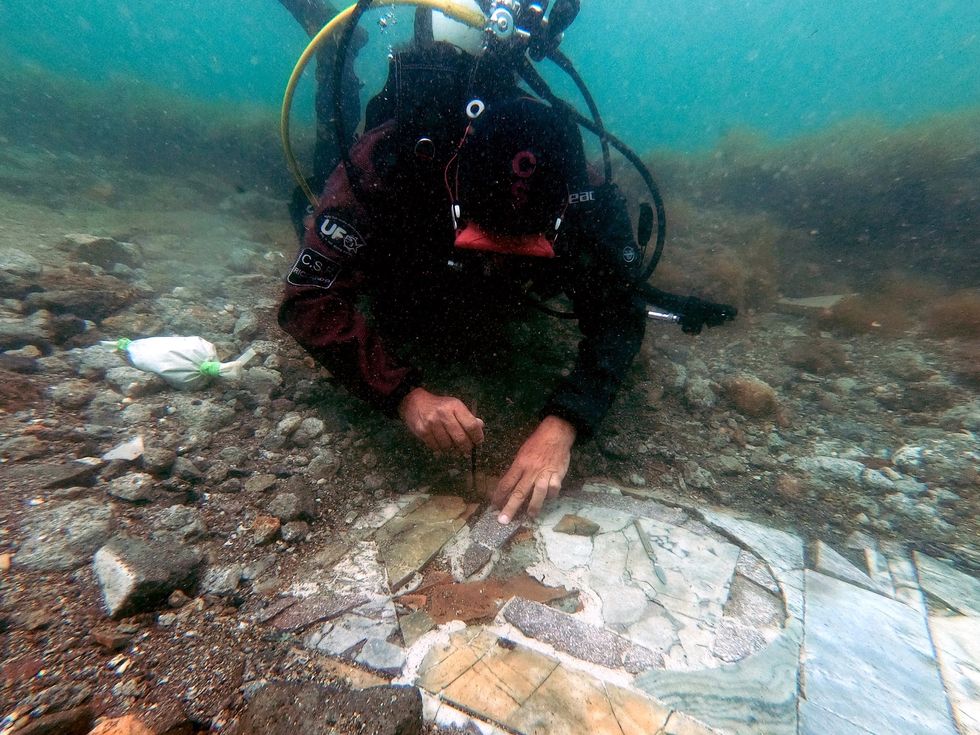
Officials say the mosaic would have been the floor of a reception room in a villa owned by a high-status individual during the third century
|Parco Archeologico Campi Flegrei
The underwater site was made a Marine Protected Area in 2022.
Licensed divers can explore the area, however they must dive with a local guide.
Many archaeologists are not concerned with looters but with the deterioration of the site.










